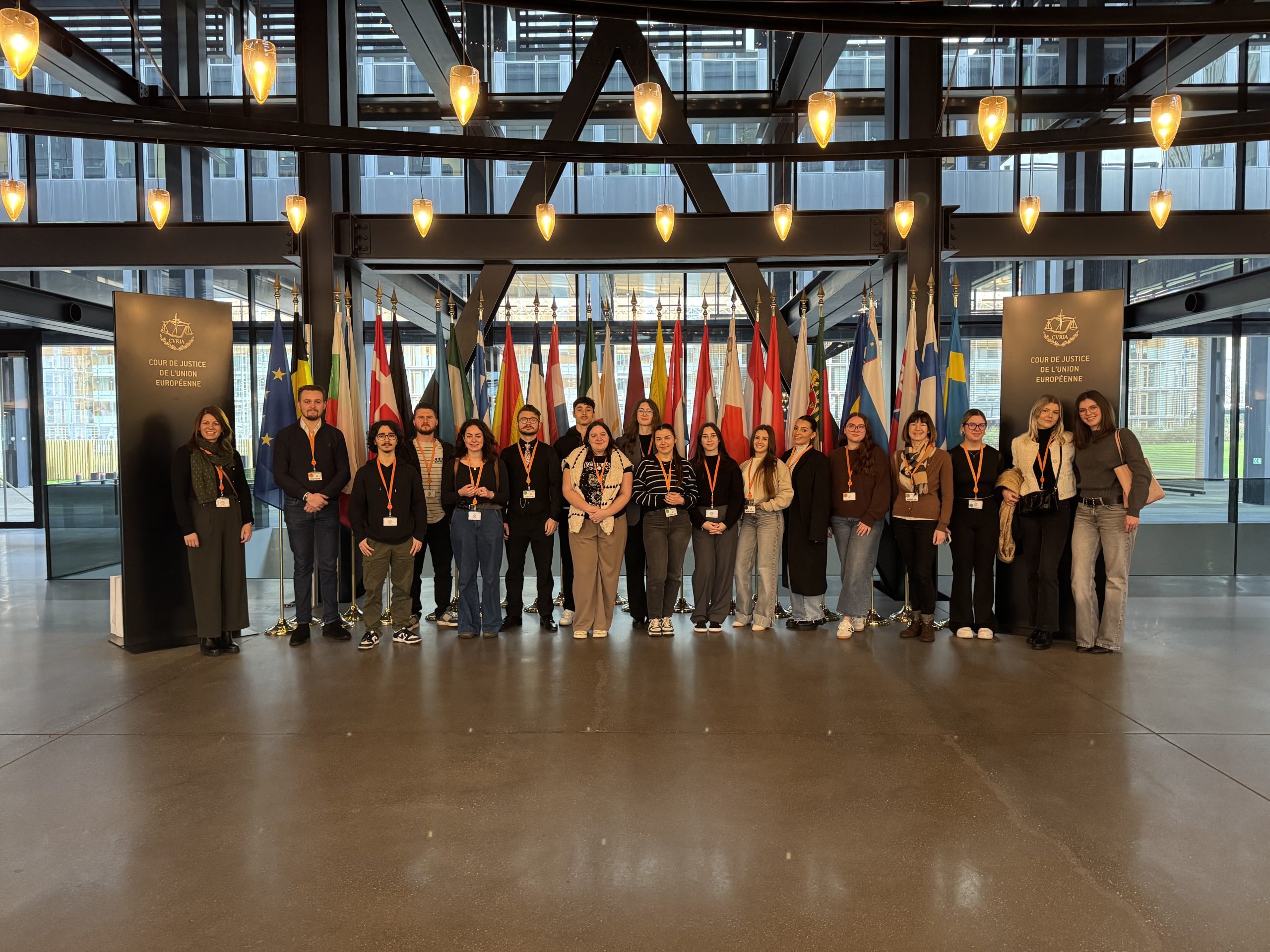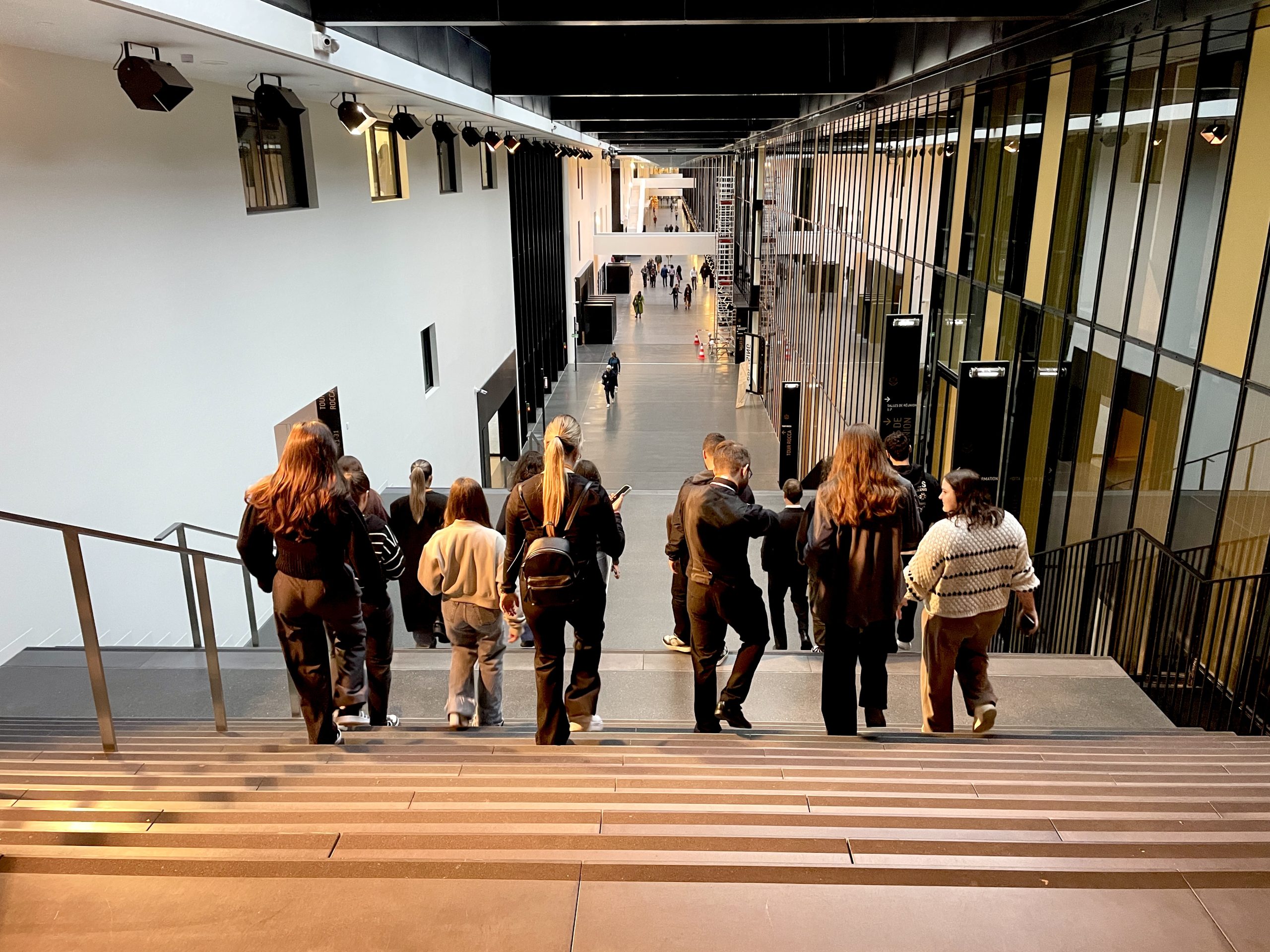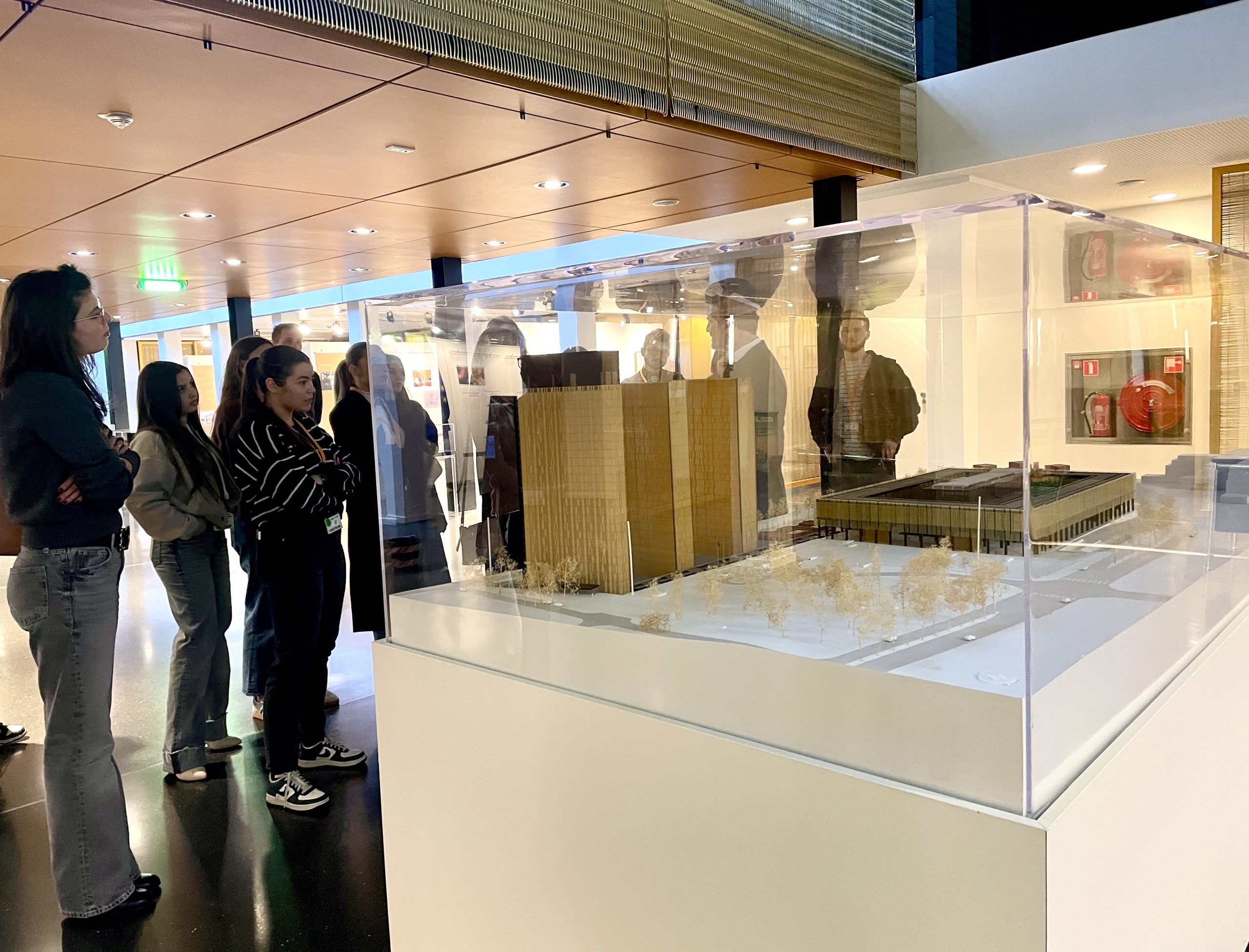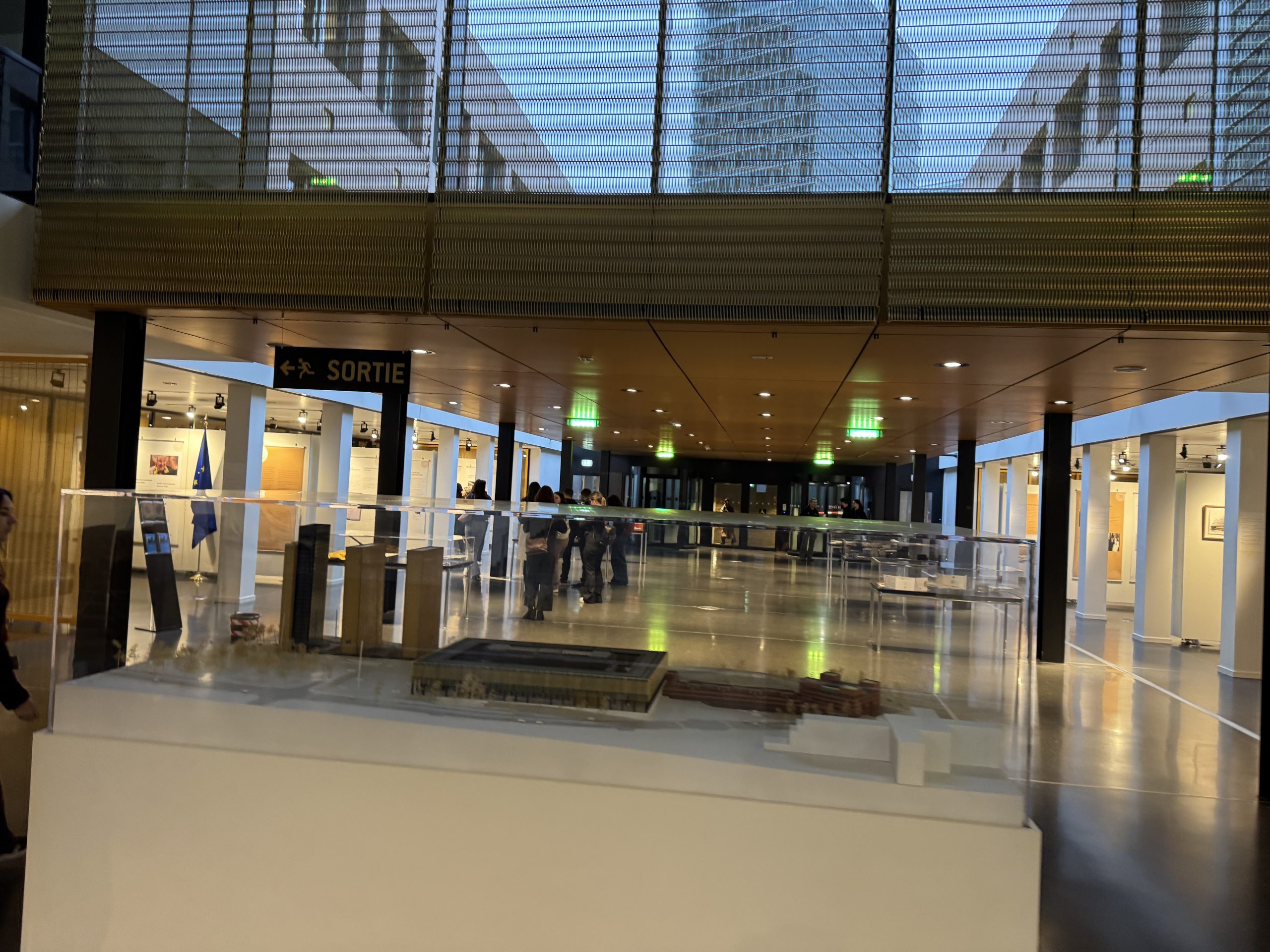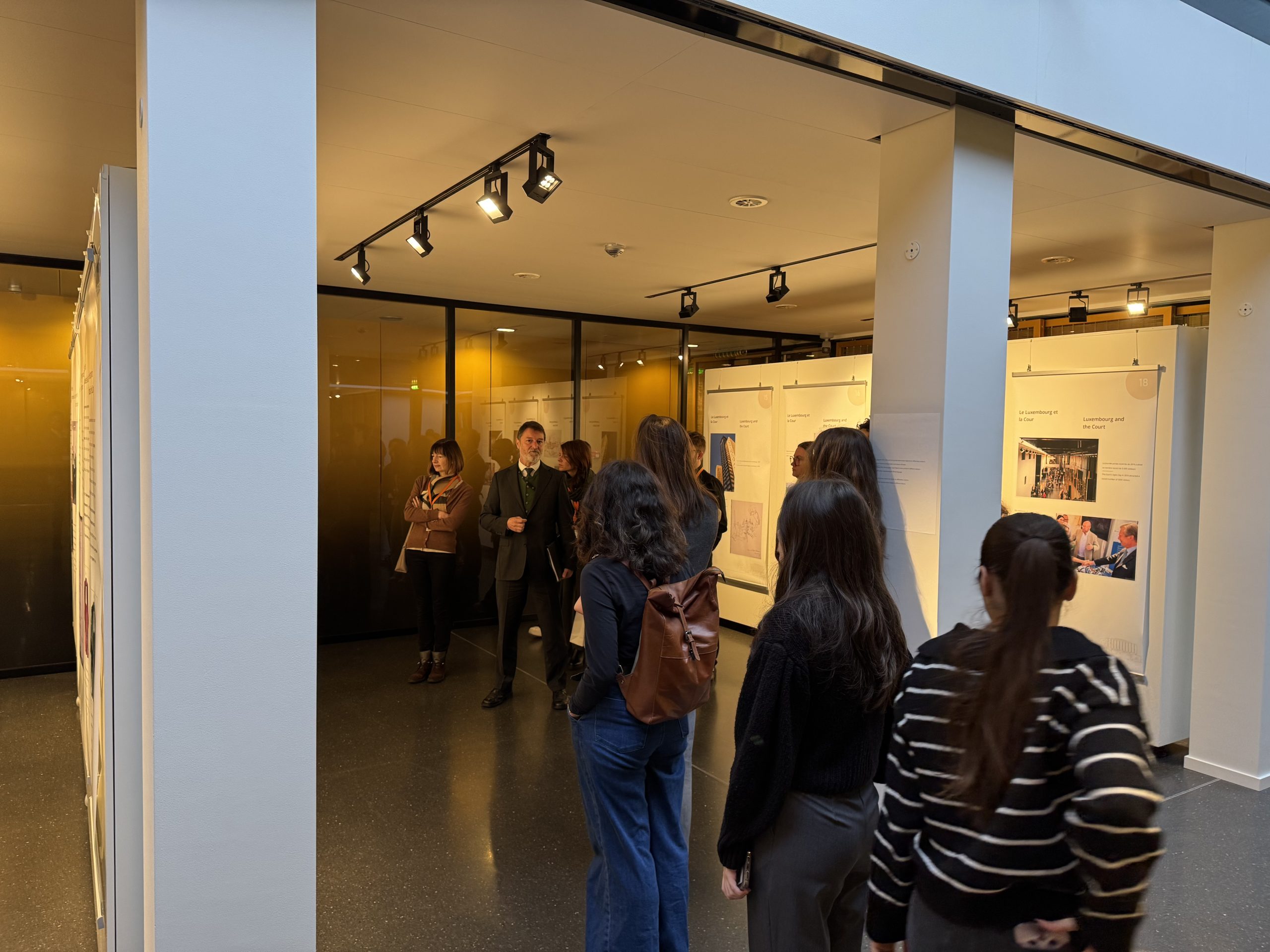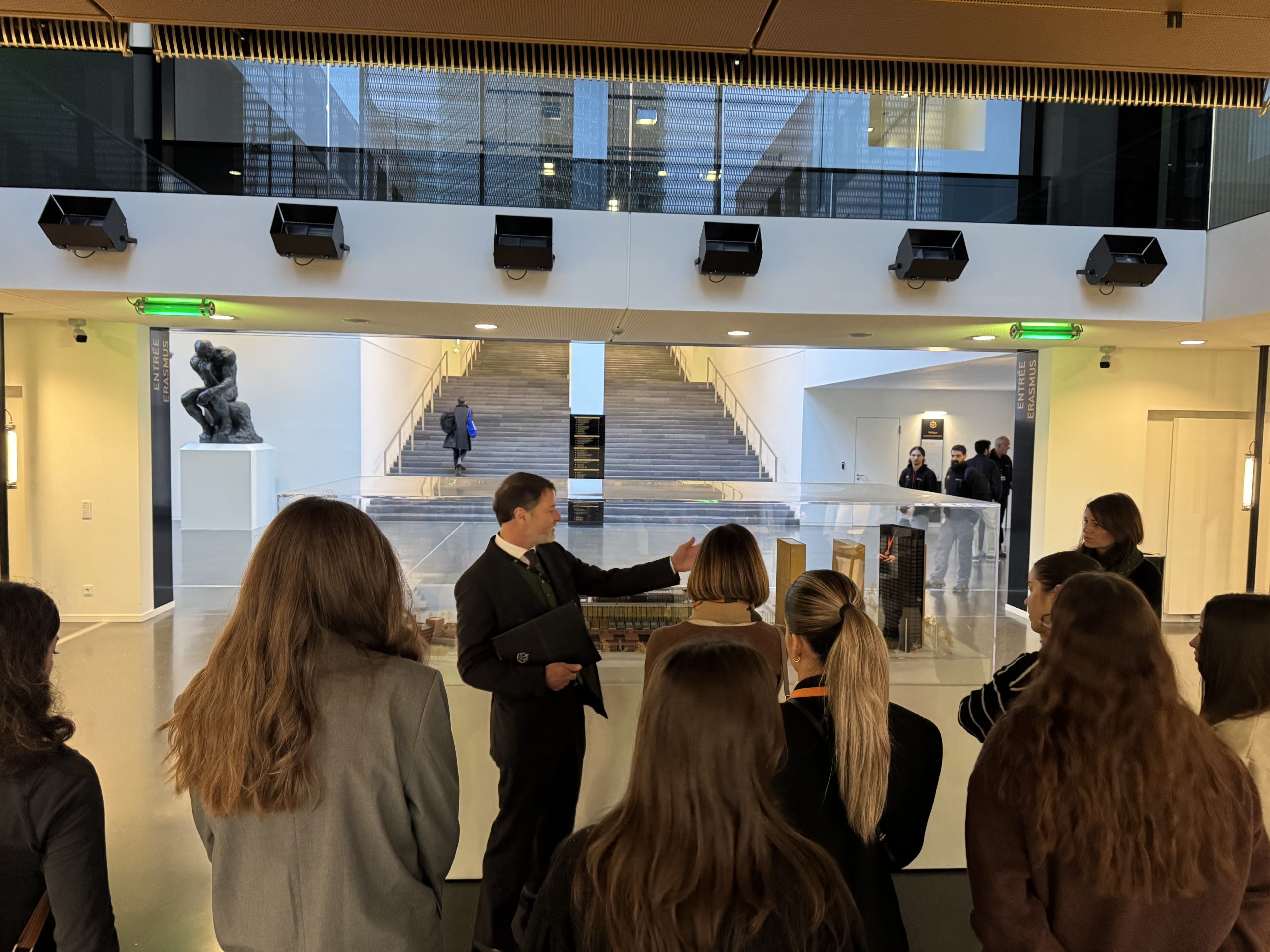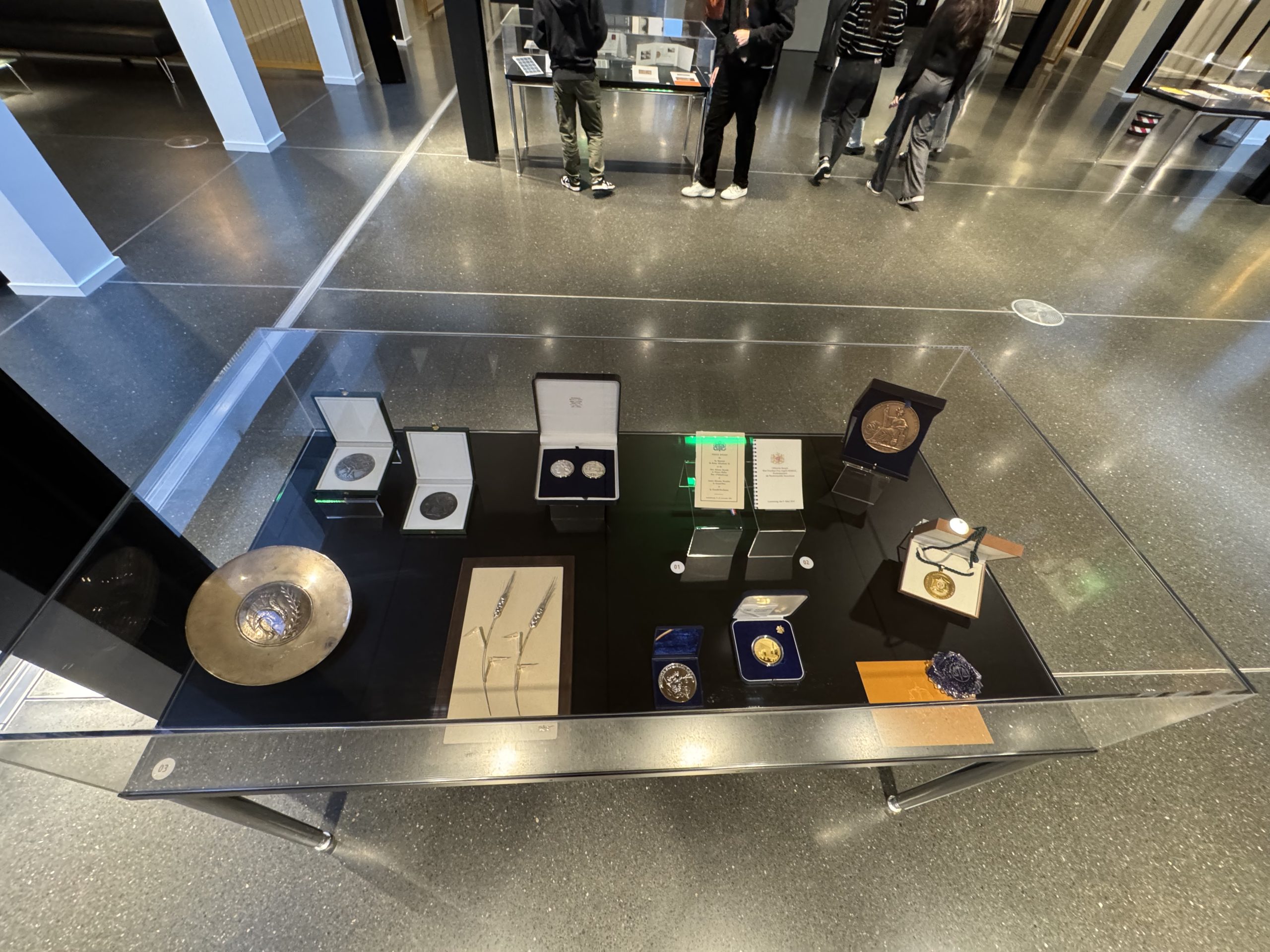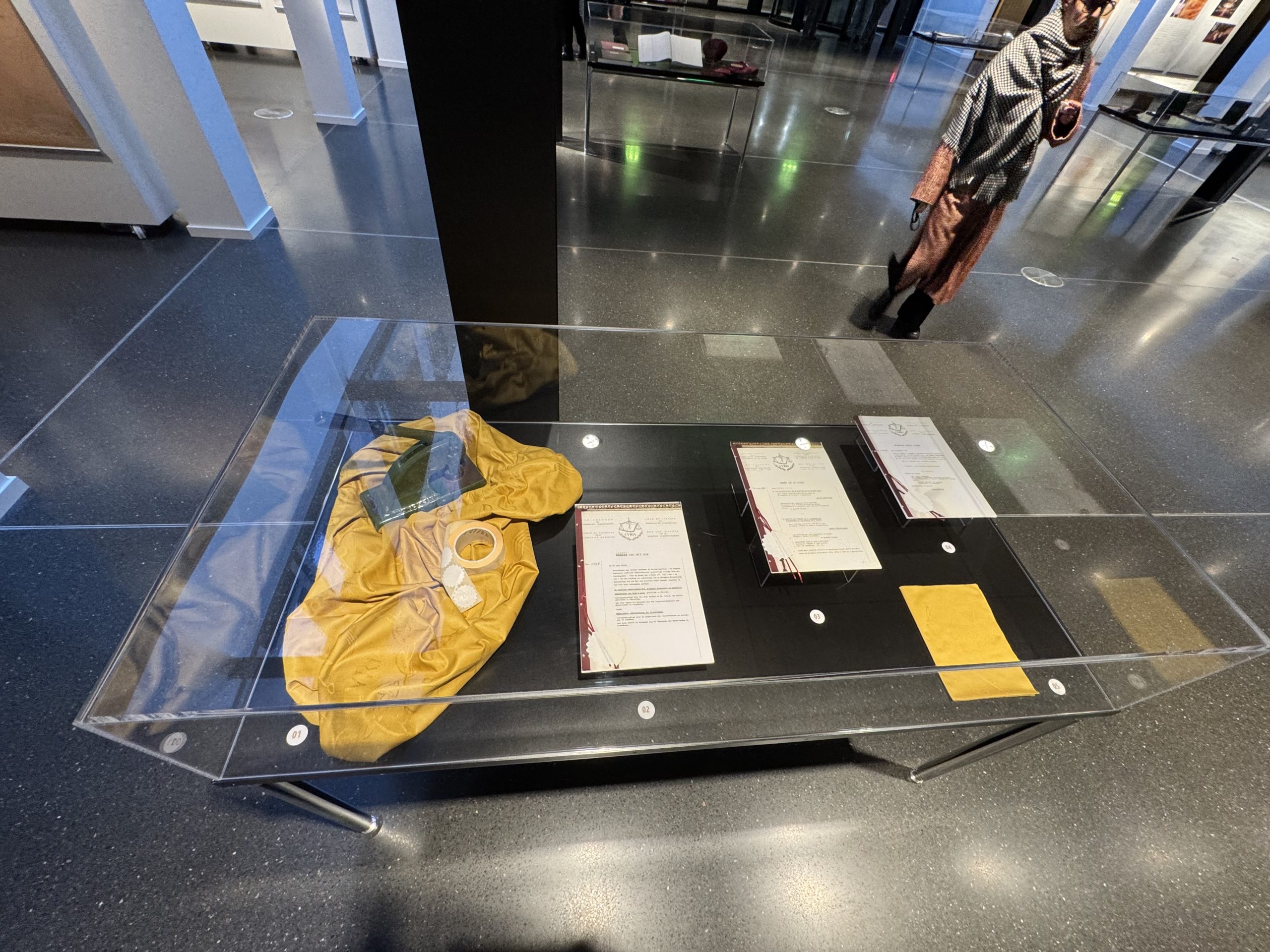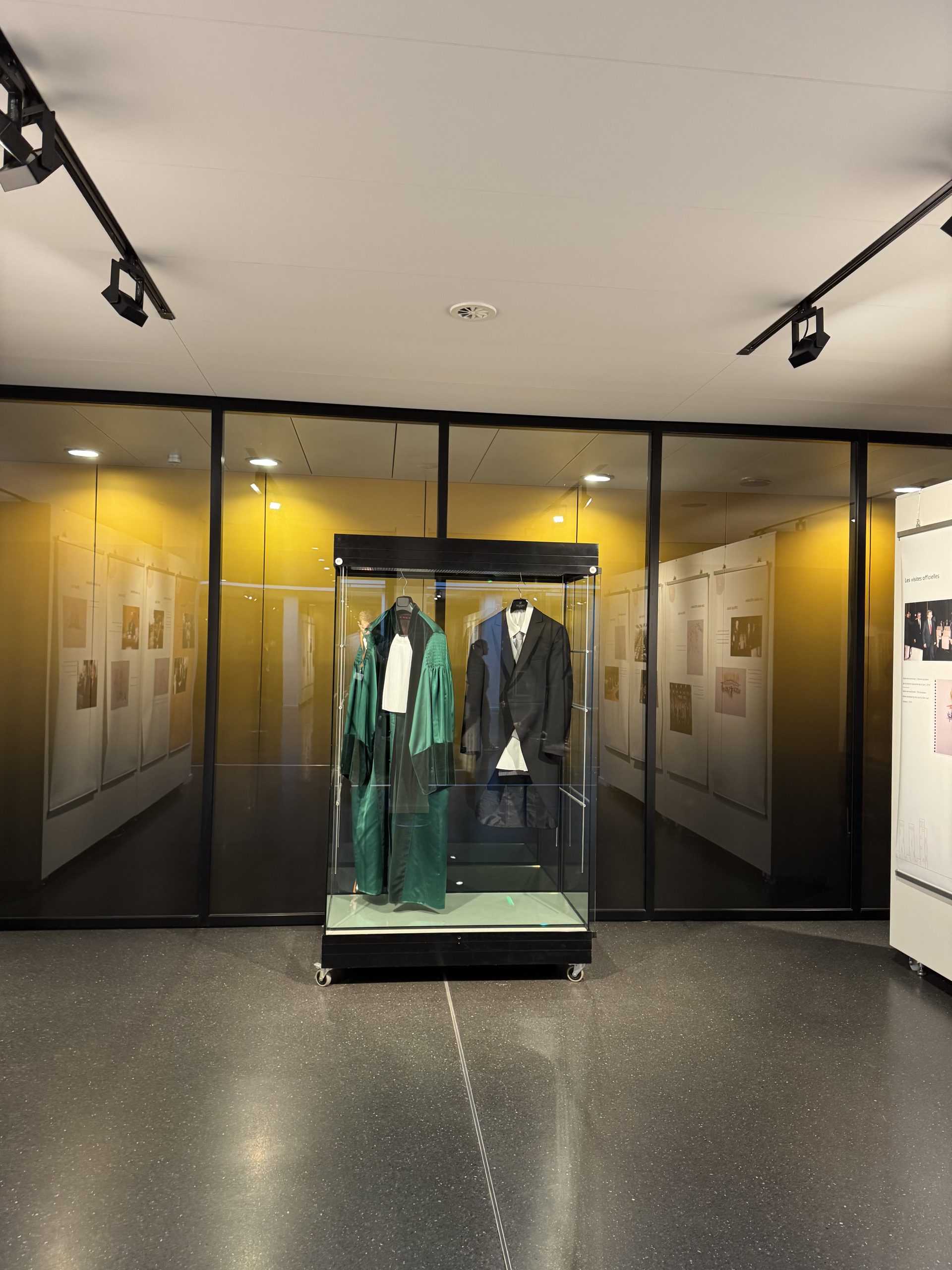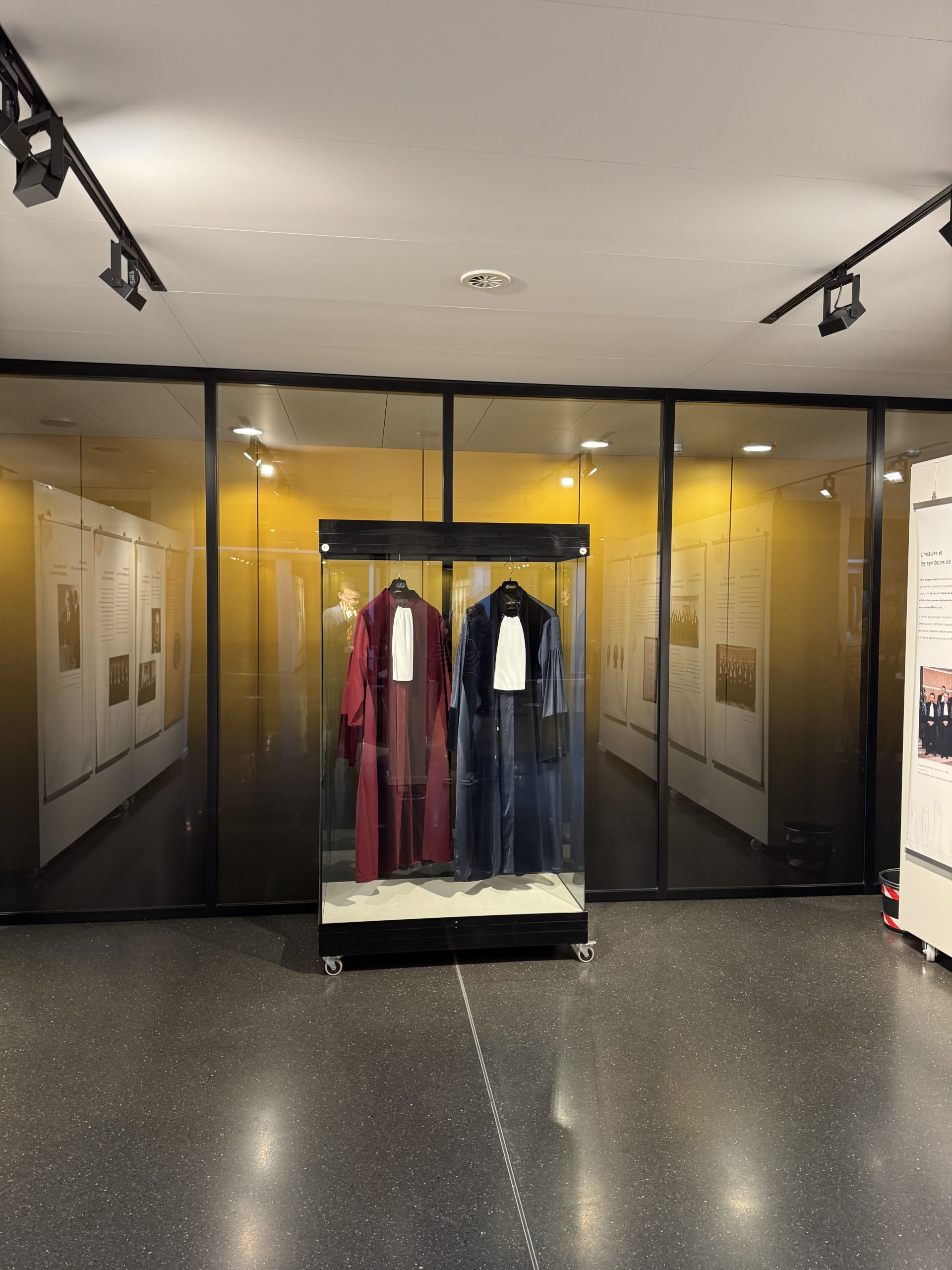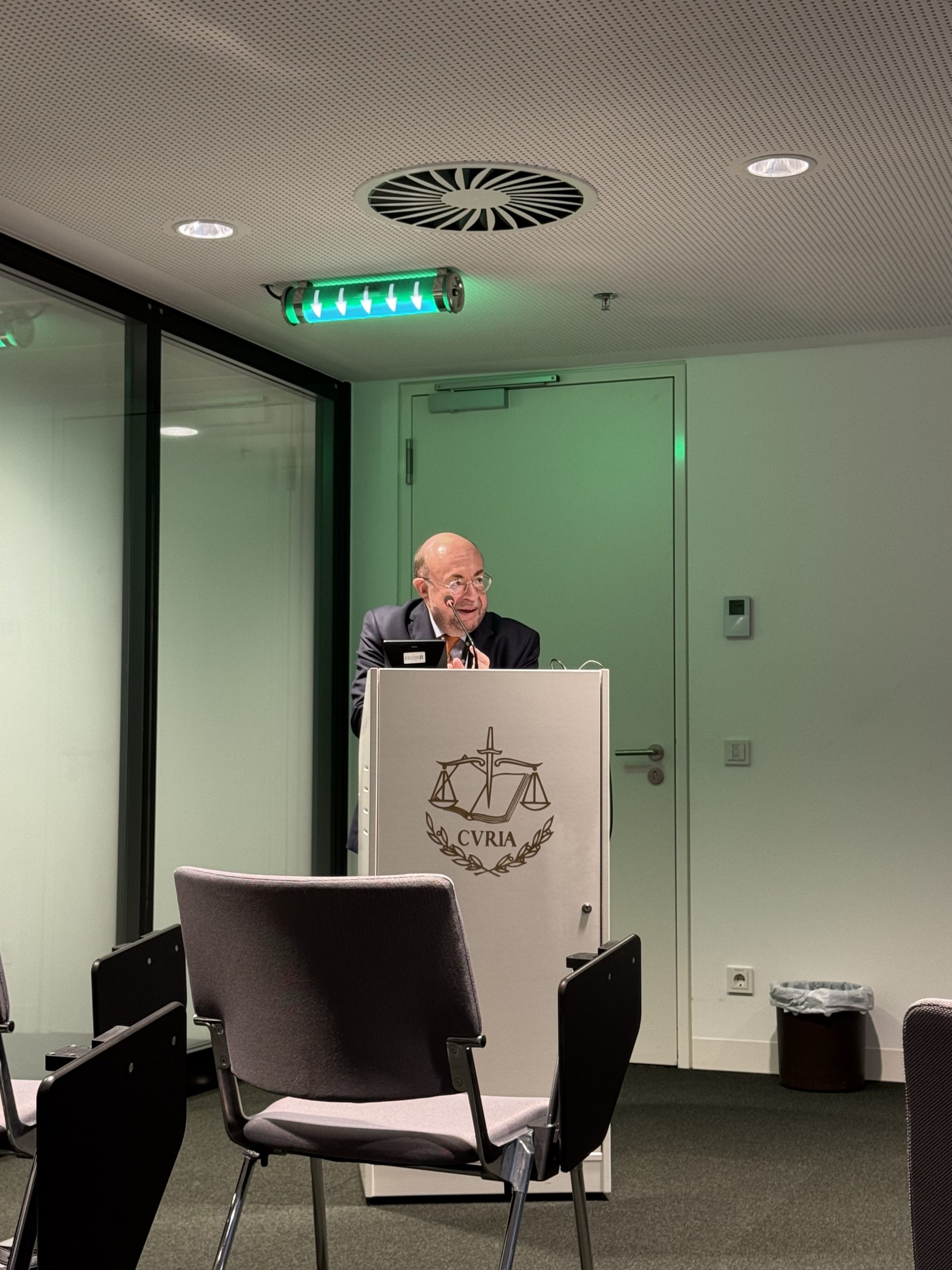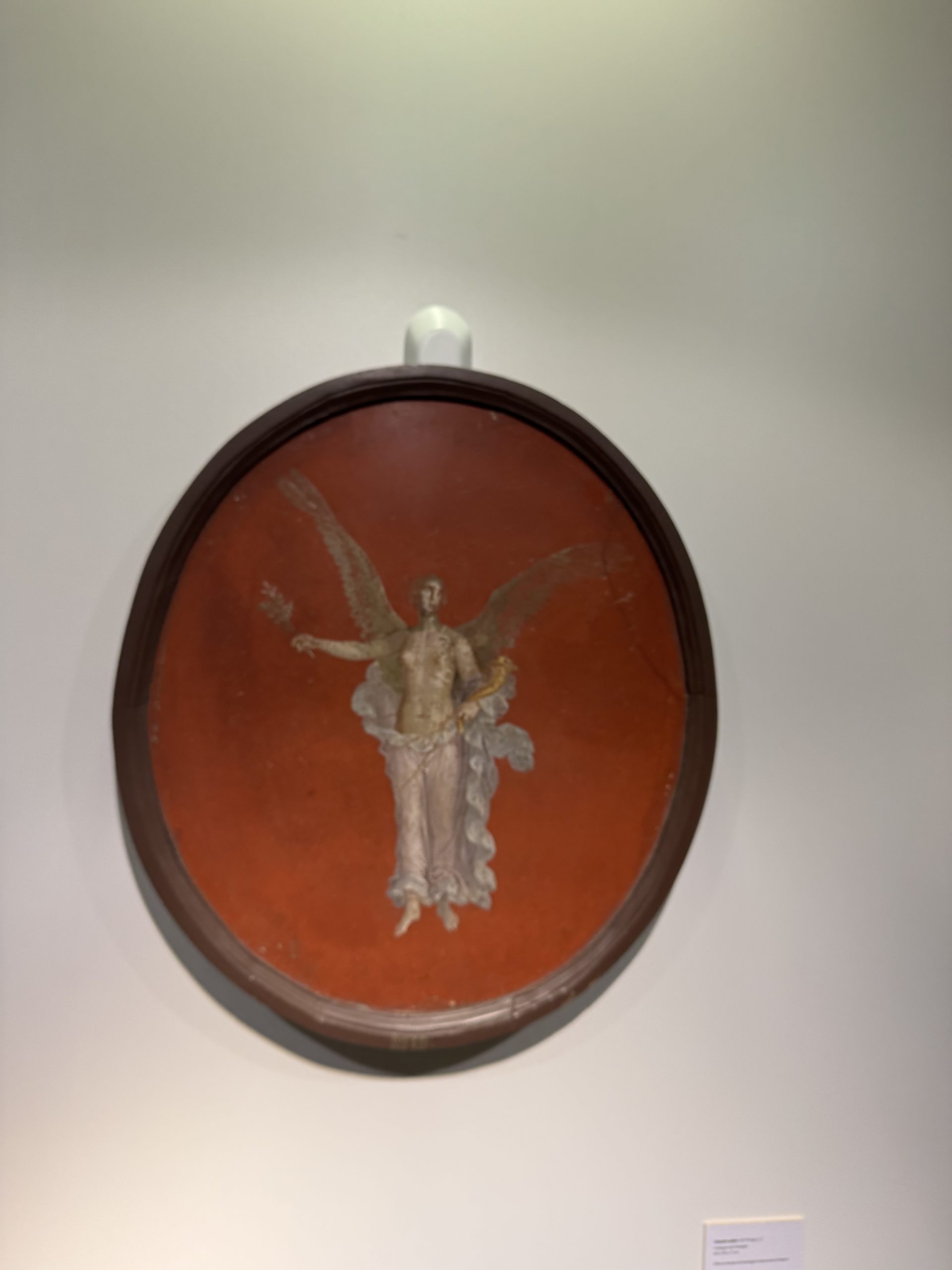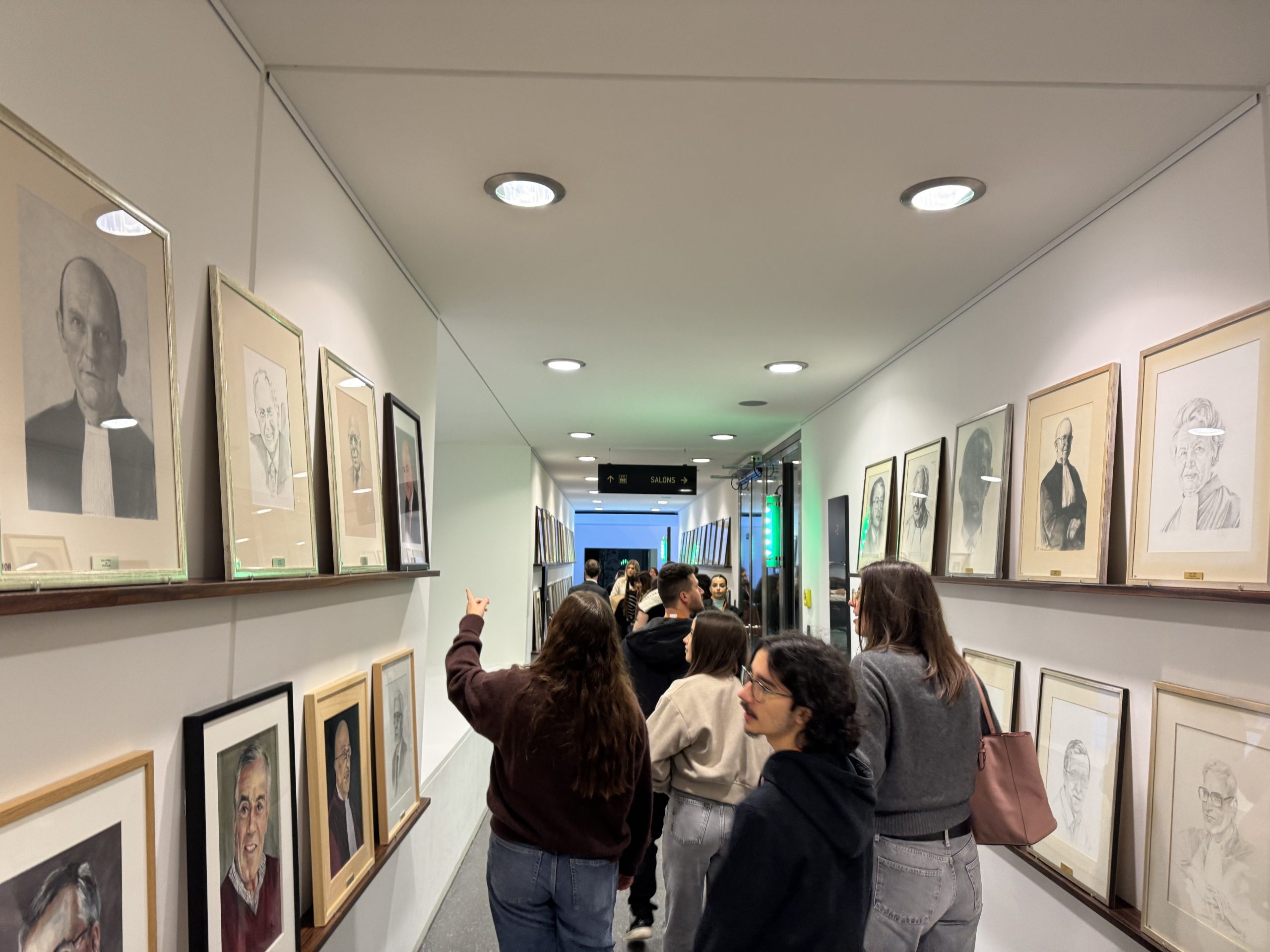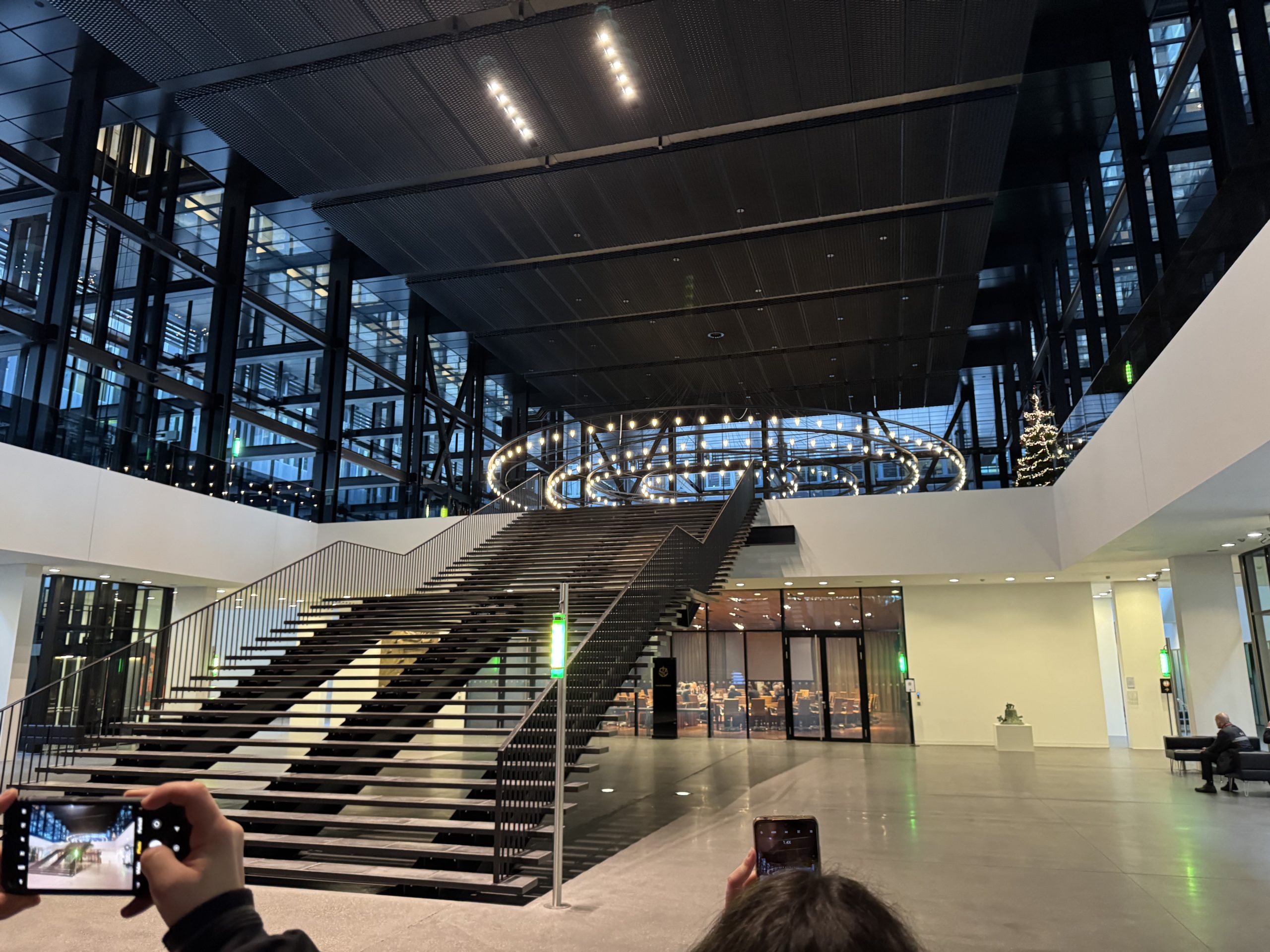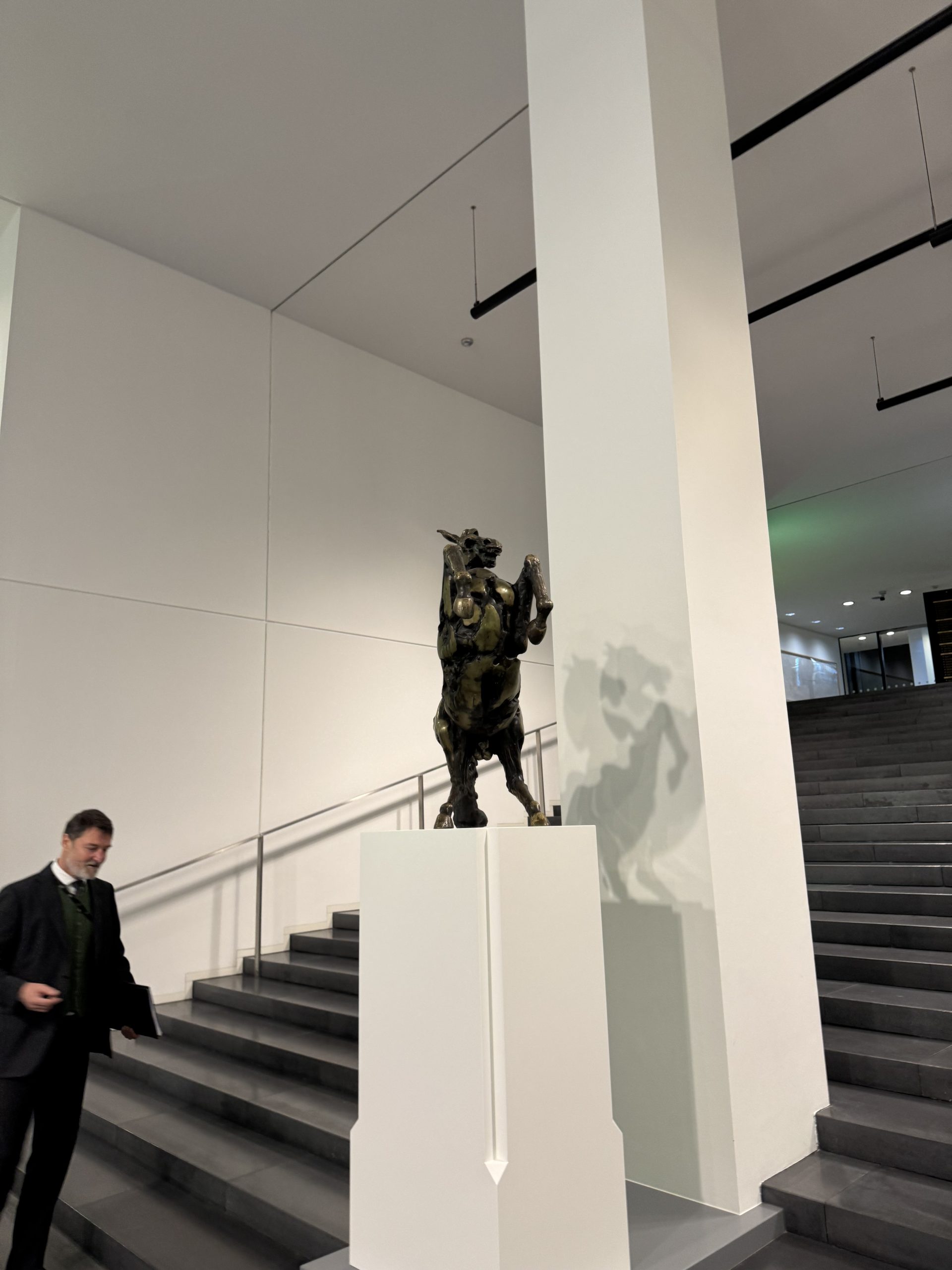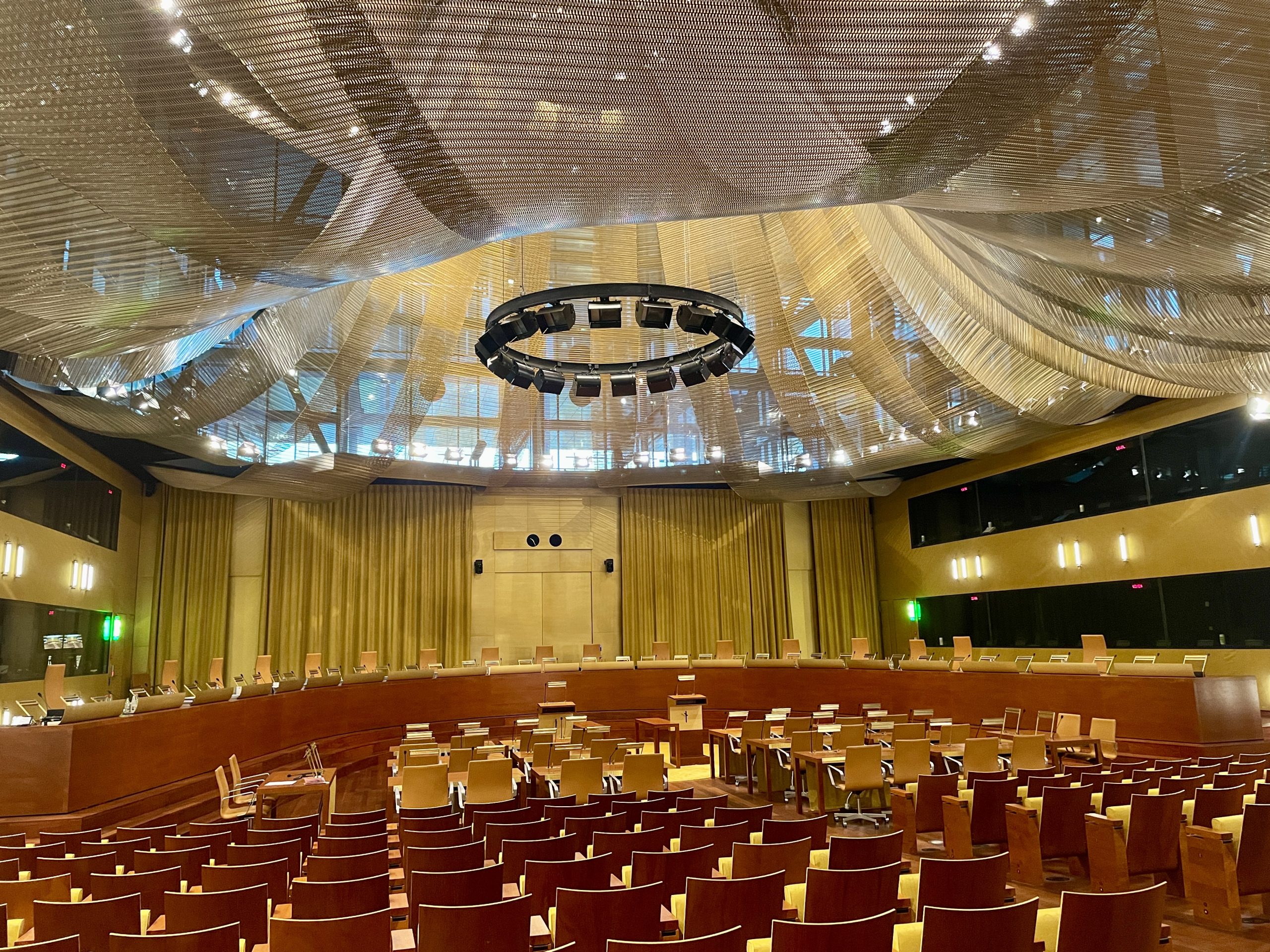On 9th December 2024, students of the course “Democratic transitions in Central and Eastern Europe – history, memories, challenges” from the Bachelor in European Cultures visited the Court of Justice of the European Union. The visit was organised in the context of the 2024 edition of the Winter (Online) Lecture Series on Europe, which were run in conjunction with Europe Direct at the University of Luxembourg (ED-UNILU) – a competitive European public history project co-funded by the European Union (2021-2025) – and several other partners. The students were accompanied by Victoria Mouton, a research and development specialist at C2DH. The Europe Direct at the University of Luxembourg was represented by Luca Colling.
The visit to the premises of the CJUE included a guided tour during which the students visited the public part of the CJUE with a small exhibition and the Great Hall of the CJUE, where 15 judges of the European Union are present during hearings and decisions. This was followed by a workshop with the Honourable Judge François Biltgen, who explained the structure and mission of the institution to the students. Practical examples were used to illustrate the legal issues dealt with by the Court of Justice of the European Union.
The Court of Justice of the European Union was established in 1952 and it has its headquarters in Luxembourg. Its role is to ensure that EU legislation is interpreted and applied in the same way in all EU countries; to guarantee that EU countries and institutions comply with European legislation.
The Court of Justice consists of one judge per Member State and 11 advocates-general and the General Court consists of two judges per Member State. The CJEU comprises two courts: the Court of Justice, which deals with references for preliminary rulings from national courts, as well as certain actions for annulment and appeals and the General Court, which rules on actions for annulment brought by individuals, companies and, in some cases, Member States. The cases dealt with mainly concern competition law, state aid, trade, agriculture and trademarks.
Photo Gallery
©Europe Direct at the University of Luxembourg
